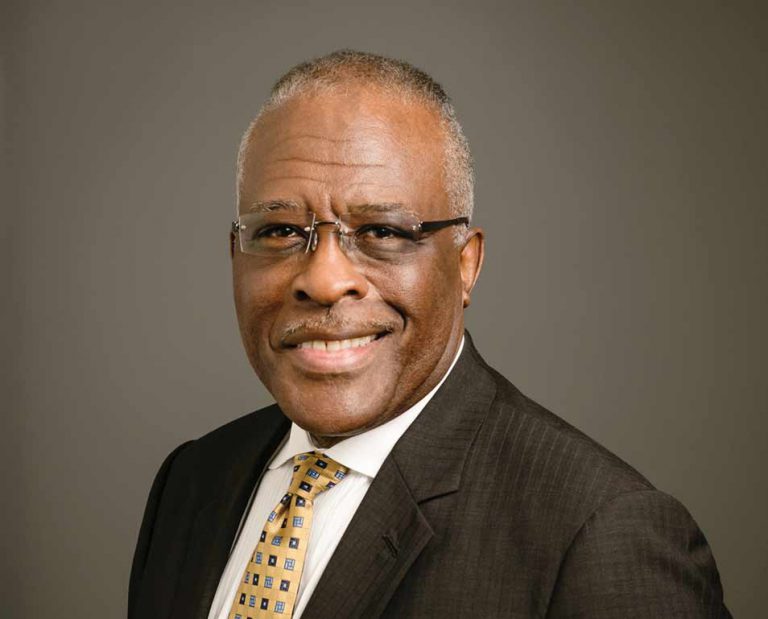In his annual “State of the University” address Friday, University of Illinois Chancellor Robert Jones applauded the Illinois government for a recent revenue increase, discussed campus strategies to recruit and retain top-notch faculty and announced new efforts to increase outreach to the local community.
Jones also explained what U of I officials are doing to address the Urbana campus’ most critical challenges, which include handling of sexual misconduct cases, creating a campus climate of tolerance, dialogue and open expression, and addressing the issue of Chief Illiniwek–the campus mascot retired more than a decade ago that continues to be a “point of contention” among students and alumni.
Jones said the campus is working to identify a historian who can document the full history of the Chief at the U of I. He also announced a new program that will allow any admitted student who’s a member of a federally recognized native nation to pay in-state tuition and fees no matter what state they’re coming from.
“To those whose ancestors may have been the first residents of this land, we hope that this is seen as an invitation to return home to Illinois,” Jones said.
Although this year’s undergraduate class is the most diverse in history, Jones said the work to create a climate of tolerance and open expression is not finished.
“This record-breaking year at Illinois has brought us a noose, swastikas, racist outbreaks shouted from cars on busy campus streets,” he said. “These are issues that cause concerns for our safety.”
Jones reiterated the U of I’s commitment to eliminate racism and discrimination, and said violence of any kind will not be tolerated.
Regarding issues pertaining to sexual misconduct, Jones said the U of I is working on changing policies to increase transparency, respond more quickly to allegations and continue to implement the reforms recommended in a report last fall by a U of I system-wide task force.
Jones also announced a new partnership with local K-through-12 educators to provide disadvantaged students from Champaign-Urbana more exposure to the fields of science, technology, engineering and math.
The pilot program, called “STEM Illinois,” grew out of discussions last spring with community stakeholders, Jones said.
The program “will offer more local students the skills and the knowledge they need for college and careers for the 21st century,” he said, and hopefully get more children from the local community interested in STEM fields in order to help address the shortage of STEM workers nationwide.
In response to a comment from the audience, describing the state of student mental health care at the U of I as “deplorable,” Vice Chancellor for Student Affairs Danita Brown Young said student wellness and well-being is a top priority.
The U of I is working on hiring more psychologists and psychiatrists to work at McKinley Health Center, along with clinical social workers and nurses who can help meet the growing demand for mental health services among students, Young said.
The campus is also working on hiring more counselors who will be embedded on campus, she said.
Campus officials said they want to dispel the myth that mental health services are not available on campus and ensure that students in need of help know they can reach out.
Follow Christine on Twitter: @CTHerman

